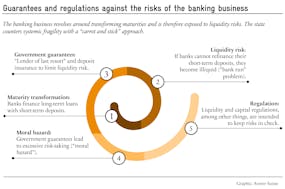The 2050 Energy Strategy was accepted by a majority of voters on May 21, 2017. As fervent defenders of our democratic order, we can only accept this result without dithering. Nevertheless, it is regrettable that this proposition overshadowed the liberal viewpoint on the market and the economy. Now, the billions of francs in public funding to support electric cars will further impair the market mechanisms in the energy sector, and reforms for the liberalization of the electricity market likely will be postponed indefinitely even though they are urgent and necessary. And, of course, consumers will have to bear the consequences by being forced to pay excessive prices. Even so, barely a few months after the vote in May, there are now additional demands for new state-supported activities in the field of electric cars.
A call for state intervention
At the parliamentary level, efforts have multiplied to build rapid charging stations along national highways. Thus, the call for additional state intervention is likely to follow soon. However, the Federal Council realizes that the demand for fast charging stations is still in its early stages. Subsequently, the incentive has little support from private investors and rest-stop operators. However, even in the bourgeoisie’s leading newspaper, the Neue Zürcher Zeitung, those who would offer advice concerning energy and mobility have had plenteous space in the past few days. A demand for political action has been made for all newly-built car parks, whether they are public or private, to include charging stations, but the financial consequences for taxpayers have not been mentioned. Furthermore, a parliamentary initiative recently requested that, by 2025, no new passenger vehicle with a combustion engine be allowed to register. Regarding this point, a call for definitive action by the state already has occurred.

“Trendy” Tesla: With the frenzy for electric cars, we tend to forget that CO2 is emitted during the production of the batteries for electric cars. (Wikimedia Commons)
Not economically profitable
The road to a future with electric cars appears to be an evolving process, even if consultants and certain parliamentary initiatives are currently calling for revolutionary action. Given that oil reserves are limited and that sustainable technologies are becoming increasingly significant as a result of climate challenges, the widespread high hopes for e-mobility are understandable. Tesla is the benchmark today, but the range of vehicles on the market remains limited, production is costly, and these vehicles are often associated with high purchase prices. Electric cars are unlikely to be economically profitable in the near future. In the overall energy balance, electric cars do not achieve the best results, so, in spite of the enthusiasm surrounding e-mobility, there should be a greater focus on cost-benefit analyses.
In the near future, the discussion will be extended towards granting more privileges for road traffic and the reinforcement of e-mobility research in Swiss universities. This measure alone will not drastically accelerate the penetration of electric cars on the market. The race for tomorrow’s engine technology has started and should not be prematurely determined by policies in favor of a single technology pushed forward by well-intentioned interest groups. Research should be conducted without prejudice, which does not seem to be the case for the fundamental research on mobility. Conversely to the current broadening of the interventionist (industrial) policy of the state in the energy sector, it should not apply to electric cars. Otherwise, there is a risk that e-mobility could become a new Trojan horse to pay subsidies.
The original German version of this article was published on August 28, 2017 in the printed edition of the «Luzerner Zeitung» and «St. Galler Tagblatt».





